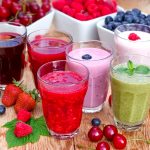53 Organic Living Tips
- Avoid multi-vitamins. Instead, build your own vitamin stack. Most multi-vitamins skimp on the important nutrients.
- Consider supplementing Omega-3s. It’s perhaps the most important supplement of all for the health conscious.
- Look up and remember when your local farmer’s markets are. They’re cheaper, and you can ask directly about how the food was grown.
- Buy green cleaning products to avoid chemicals like ammonia or chlorine in your house.
- Not all food has to be labeled “Organic” to be healthy. If you’re buying directly from the farmer, ask how it was made.
- Sign up for your local fruit or veggie boxes. Farmers will deliver fresh organic produce straight to your door.
- See if there are food co-ops near you. These co-ops grow organic food and sell it to their local markets.
- Carrots, beets and radishes are very easy to grow. If you want to give growing a shot, that’s a good place to start.
- Try to eat as much of your produce raw as possible. Cooking destroys enzymes and can reduce vitamin content by 12x.
- Soak produce in 1/3rd vinegar and 2/3rds water to kill bacteria, if eating it raw.
- Check the OCA’s website to buy organic foods online – organicconsumers.org
- Trader Joe’s is a great, lower-cost alternative to Whole Foods. Do you shop there?
- Subscribe to health coupon sites for deals. organicdeals.com healthsavers.com mambosprouts.com
- Look for “specials” in supermarkets (including Whole Foods.) These mean the food’s in season and affordable.
- Organic beans are a great source of protein. Make sure you cook them thoroughly, as semi-cooked beans are toxic.
- Quinoa is a complete amino acid and provides your body with all the proteins you need. Yummy and easy to cook, too!
- Buy your organic chickens whole. It’s cheaper than buying by the part, and you can use the carcass to make broth.









Leave a reply